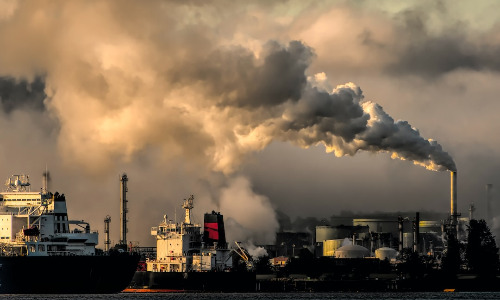
The Silent Killer Impacting 99% of the World’s Population
This World Health Day, AirPop, a leading provider of air pollution masks, is shining a light on one of the most pressing global health concerns: air pollution. With 99% of the world’s population impacted by this silent killer, it has a greater impact on global health than smoking, war, or HIV.
Air pollution is a global, but invisible, issue that damages our health, whether we know it or not. While it’s easy to assume that air pollution only impacts developing countries, nearly all first-world countries exceed WHO air quality guidelines. Poor air quality can impact every organ in the human body, shortening life expectancy by over a year.
Air pollution can slip past our body’s defences, penetrating deep into our respiratory and circulatory system, damaging our lungs, heart and brain. There is no ‘safe’ level of air pollution, and even low concentrations can impact our health. As such, it is crucial that we take action to protect ourselves and improve global air quality.
Although the current state of global air quality may seem bleak, there are many success stories from countries and cities that have vastly improved their air quality and, therefore, the health of locals. For instance, particulate pollution in China dropped by 29% within six years due to the introduction of strict air pollution policies and a shift to clean energy, such as solar. In the US, common ambient air pollutants have dropped significantly since 1980, with some particles experiencing an almost 100% improvement in air quality over the past four decades. Similarly, Montreal saw emissions fall by 54% in just five years (2008-2013) by expanding tree cover and transitioning vehicles from petrol to electric.
While it’s clear that many of us cannot avoid polluted areas, being aware of air pollution and the harm it can cause is the first step. One easy way to reduce exposure is to avoid exercising outdoors when pollution levels are high. Since we inhale more air when active, exercise is a particularly high-risk activity during high pollution days. So, if possible, find an indoor venue or avoid exercise until pollution levels are lower.
Most of the health dangers surrounding air pollution have been directly attributed to fine particle concentrations. When in these areas, it’s recommended to ensure that you have certified well-fitting face masks ready to protect you and your family. The most common certifications for masks are N95, KN95, KF94, and FFP2. All of these certifications are roughly equivalent but are from different regions.
AirPop, one of the leading providers of air pollution masks, has designed masks with three essential pillars in mind: filtration, fit, and comfort. AirPop masks are certified KN95 and provide filtration in excess of the standard. They are highly breathable and comfortable to wear, even after long periods, with flexible nose seals, adjustable ear loops, and a dome shape to keep the mask off your face for easier breathing and speaking. For air pollution, reusable masks with replaceable filters are an excellent choice. These masks tend to be more cost-effective in the long run and are more environmentally friendly.
AirPop has also provided free-to-access resources to raise awareness around air pollution, one of the most pressing health concerns we face globally. To celebrate World Health Day, AirPop is offering its 8 pack of Pocket masks for $19.99 at www.airpophealth.com.
Air pollution is a significant threat to our health, and it’s crucial that we take action to protect ourselves and improve global air quality. While it may seem daunting, there are many success stories of countries and cities improving their air quality, and we can all make small changes to reduce our exposure to air pollution.


